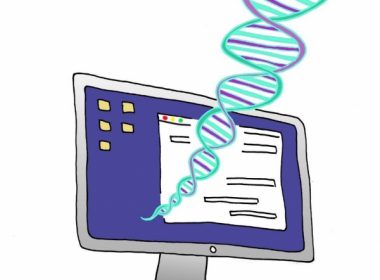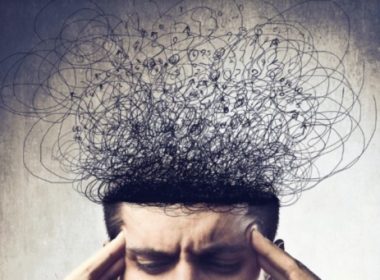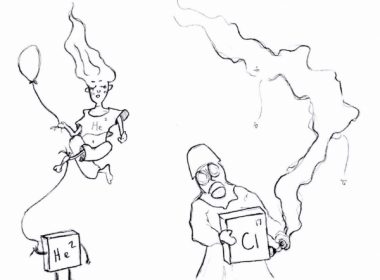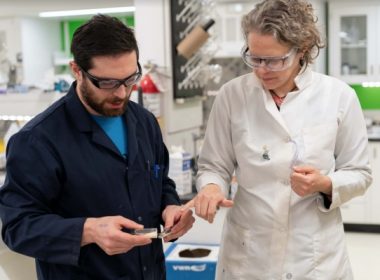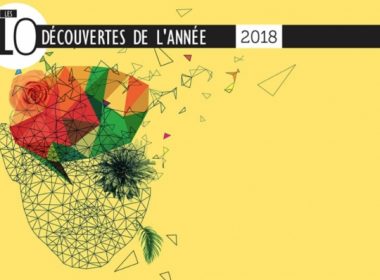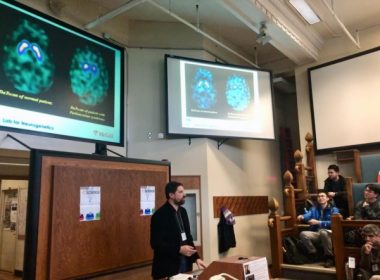In Canada, deaths from gynecological cancers have steadily decreased over the past three decades. As women are no longer heavily exposed to carcinogenic dyes in clothing and early detection programs have improved, detecting cervical and uterine cancers has slowly become less of a priority for gynecologists. However, ovarian cancer continues[Read More…]
Science & Technology
The latest in science and technology.
Removing the barriers for genetic data sharing
The emerging field of computational genomics, which uses statistical analysis to unpack the plethora of information harboured inside the human genome, is complicated. The sheer amount of data that comprises the human genome is massive. Meanwhile, the pressure is high: With more people turning to their genes for answers to[Read More…]
Questioning the device we use to question
To kickoff the Science Undergraduate Society’s ‘Academia Week: To Science and Beyond,’ David Ragsdale, associate professor in the Department of Neurology and Neurosurgery, explored questions on morality and neuroscience. Within every human head, there is a tangible organ associated with something fundamentally intangible: The mind. “Your brain is a physical[Read More…]
Elementary, my dear Watson
Everything is made of something. Books are made of pages, which are made of paper, which is made of wood. All of these items are made up of molecular complexes that break down into tiny atoms. What differentiates these atoms from one another is the number of subatomic particles, protons[Read More…]
Lobsters and crabs, here to save the oceans
While attempts to reduce plastic usage have taken many forms, including McGill’s plastic water bottle ban and much ado about straws, some McGill researchers are approaching the situation from a different angle, by replacing the controversial polymers with biodegradable alternatives. Audrey Moores, associate professor of applied chemistry and Thomos Di[Read More…]
Males more sensitive to painful memories than females
Stereotypes may lead many to assume that women are more sensitive than men. However, recent findings on pain challenge conventional assumptions regarding the way men and women experience pain. A recent study conducted by researchers from McGill and the University of Toronto exploring the role of memory in the transition[Read More…]
Politicized care: Indigenous ways of knowing in healthcare
McGill Nurses for Global Health hosted a panel of indigenous healthcare professionals and community members on Jan. 17 to discuss the importance of integrating indigenous understandings of health into care. Megan Eaker, a McGill Nursing master’s student and woman of mixed Cree and European ancestry, opened the event by offering[Read More…]
Ebrahim Noroozi recognized for sustainable lab initiatives
The only thing that makes Ebrahim Noroozi salivate more than food is its sustainable practices. As lab supervisor, he clearly takes pride in making his experiments more environmentally friendly. He carries with him a seemingly endless list of the many innovations he has implemented in the Department of Food Science[Read More…]
Revolutionary developments by McGill researchers in the past year
Quebec-based researchers publish over 16,000 peer-reviewed articles in scientific journals on an annual basis. For the past 26 years, the magazine Quebec Science has taken on the difficult endeavour of choosing which of these thousands of discoveries deserves to be honoured for both their methodology and impact on the scientific[Read More…]
Soup & Science: Animal edition
At McGill’s biannual intersection of science and lunch, Redpath Museum hosted Soup and Science, providing students with a look into some of the most interesting and exciting research currently underway at the university. In a series of short, three-minute presentations last week, professors from a wide array of scientific disciplines[Read More…]

